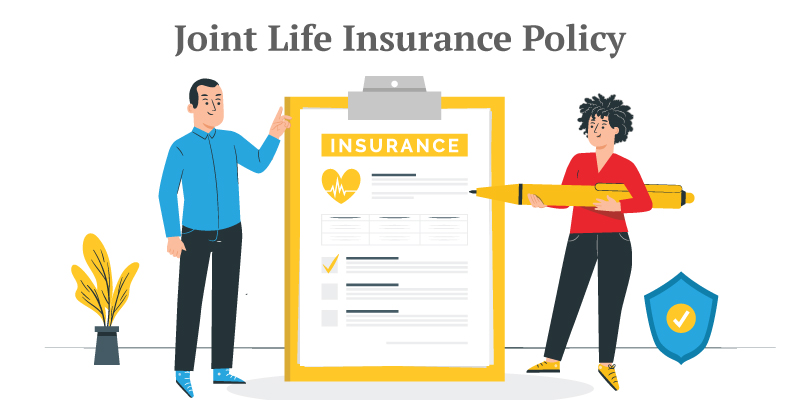A property insurance contract serves as the legal basis for resolving compensation in the event of an incident. Therefore, clients need to thoroughly read the terms and conditions to ensure their rights.
1. What is a Property Insurance Contract?
Property insurance is a type of non-life insurance, and when participating in property insurance, it is crucial to pay attention to the property insurance contract before signing.
A property insurance contract is a written agreement between the policyholder and the insurance company. According to this agreement, the policyholder pays insurance premiums, and the insurance company pays insurance money to the beneficiary or compensates the policyholder in the event of a risk to the insured property. The insured property includes tangible assets, money, valuable papers, and property rights. For a better understanding of the characteristics and benefits of property insurance, you can refer to ‘What is Property Insurance and What You Need to Know.’
Common types of property insurance contracts include:
- Valued property insurance contract: The insurance amount is higher than the market value of the insured property at the contract’s conclusion. Both the insurance company and the policyholder do not enter into valued property insurance contracts.
- Under-valued property insurance contract: The insurance amount is lower than the market value of the insured property at the contract’s conclusion.
- Double insurance contract: The policyholder enters into insurance contracts with two or more insurance companies to insure the same subject under the same conditions and events.

2. Considerations in Property Insurance Contracts
2.1. Compensation Basis
- The compensation amount that the insurance company must pay to the policyholder is determined based on the market value of the insured property at the time and place of the loss and the actual extent of the damage, excluding any other agreements in the insurance contract. The cost of determining the market value and extent of damage is borne by the insurance company.
- The compensation amount paid by the insurance company to the policyholder does not exceed the insurance amount, except for other agreements in the insurance contract.
- In addition to the compensation amount, the insurance company must pay the policyholder necessary and reasonable expenses to prevent, limit, and handle losses, as well as any other incurred expenses that the policyholder must bear to follow the instructions of the insurance company.
2.2. Forms of Compensation
- The policyholder and the insurance company may agree on one of the following forms of compensation:
a) Repair of damaged property;
b) Replacement of damaged property with other property;
c) Cash compensation.
- If the policyholder and the insurance company cannot agree on the form of compensation, the compensation will be made in cash.
- In the case of compensation as described in points b and c of paragraph 1, the insurance company has the right to recover the damaged property or compensate the entire amount based on the market value of the property.
For more details on compensation regulations, you can refer to the article ‘General Regulations on Compensation in Property Insurance.’
2.3. Loss Appraisal
Loss appraisal is conducted when an insurance event occurs. The insurance company or an authorized person appointed by the insurance company performs the loss appraisal to determine the cause and extent of the loss. The appraisal is used to value the loss of property and the compensation amount the policyholder will receive.
The cost of loss appraisal is covered by the insurance company.
- When an insurance event occurs, the insurance company or an authorized person appointed by the insurance company conducts the loss appraisal to determine the cause and extent of the loss. The cost of loss appraisal is covered by the insurance company.
- In case of disputes where the parties do not agree on the cause and extent of the loss, an independent appraiser may be requested, except for other agreements in the insurance contract. If the parties cannot agree on appointing an independent appraiser, one of the parties must request the court in the place of the loss or the residence of the policyholder to appoint an independent appraiser. The conclusion of the independent appraiser is binding on the parties.
In this case, if consistent with the initial appraisal, the client must bear the appraisal costs. If different from the initial appraisal, the insurance company must bear the appraisal costs. Additionally, you can learn more about how ‘Fixed property insurance premiums are calculated.’
2.4. Transfer of Reimbursement Claim Responsibility
Reimbursement Claim Responsibility
- In cases where a third party is at fault for causing damage to the policyholder, and the insurance company has compensated the policyholder, the policyholder must transfer the right to claim reimbursement from the third party to the insurance company for the compensated amount.
- If the policyholder refuses to transfer the right to the insurance company, does not reserve it, or waives the right to claim reimbursement from the third party, the insurance company has the right to deduct the compensated amount based on the fault level of the policyholder.
- The insurance company is not required to claim reimbursement from the parents, spouse, children, siblings, and other intentional wrongdoers who caused the losses.
2.5. Safety Regulations
- For the policyholder: It is necessary to comply with regulations on fire prevention, firefighting, occupational safety, and labor hygiene, and other relevant legal provisions to ensure the safety of the insured object.
- For the insurance company: The insurance company has the right to inspect the safety conditions of the insured object or recommend and require the policyholder to apply preventive measures to reduce risks.
Note:
- In case the policyholder fails to implement safety measures for the insured object, the insurance company has the right to set a deadline for the policyholder to implement those measures.
If the policyholder does not implement safety measures within the specified time, the insurance company has the right to increase the insurance premium or unilaterally suspend the insurance contract.
- The insurance company may apply preventive measures to ensure the safety of the insured object with the consent of the policyholder or the relevant state authority.
2.6. Not Abandoning the Insured Property
In the event of a loss, the policyholder is not allowed to abandon the insured property, except when stipulated by law or expressly agreed upon in the insurance contract.
The above are 6 considerations in a property insurance contract that you need to pay attention to before signing to ensure your rights. We hope this article provides useful information for our readers.
Cre: Harry/thebank.vn



